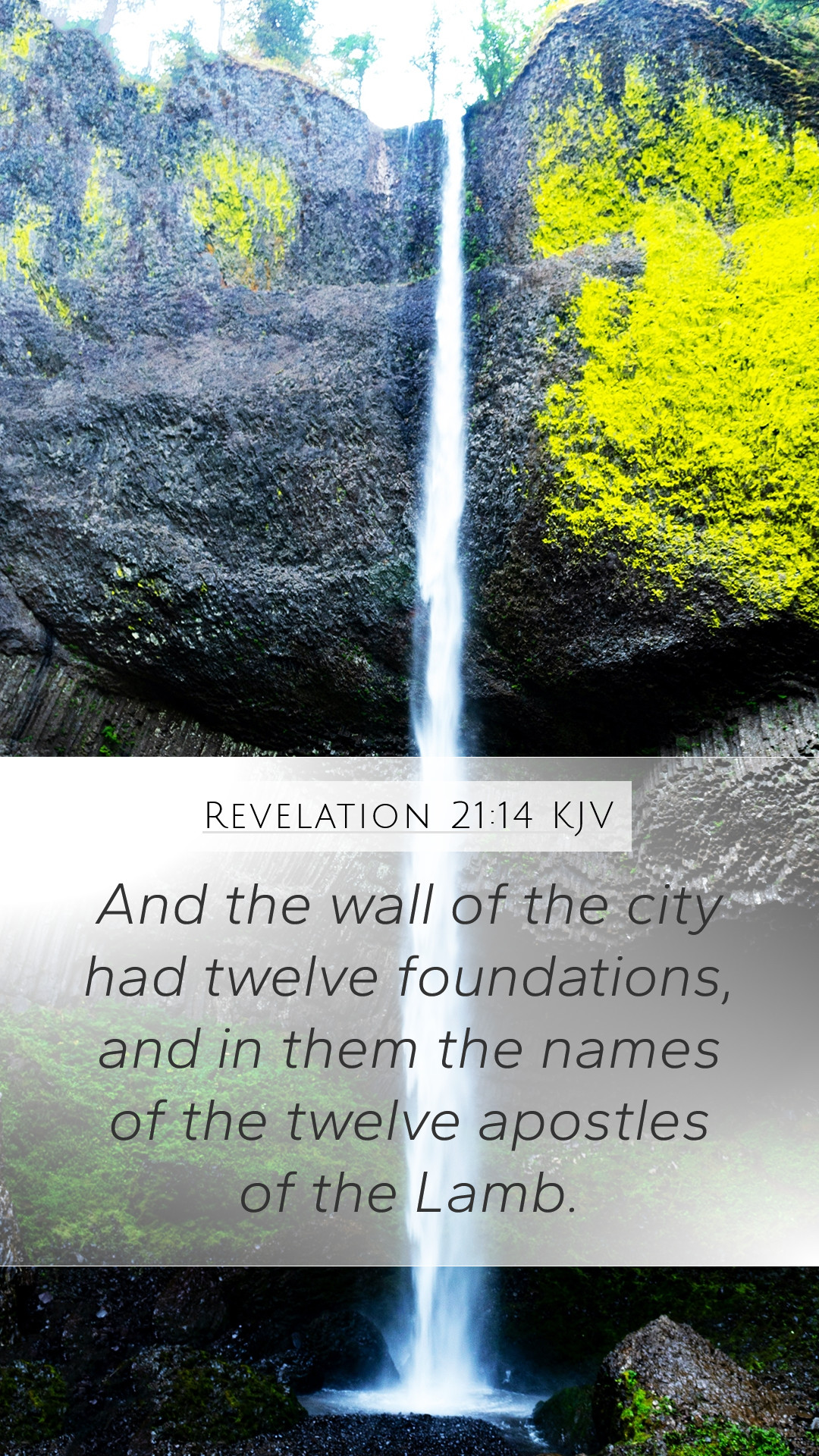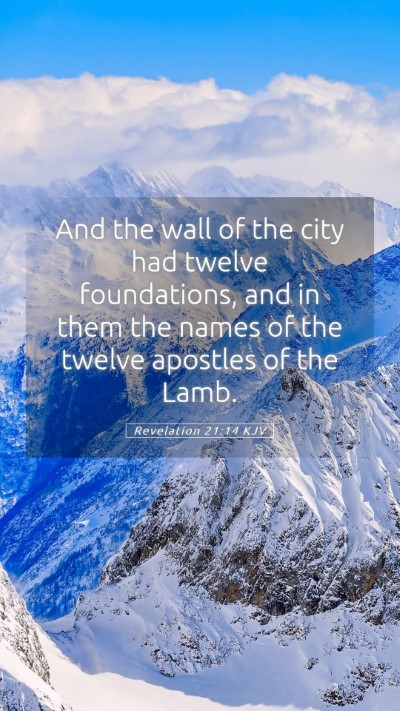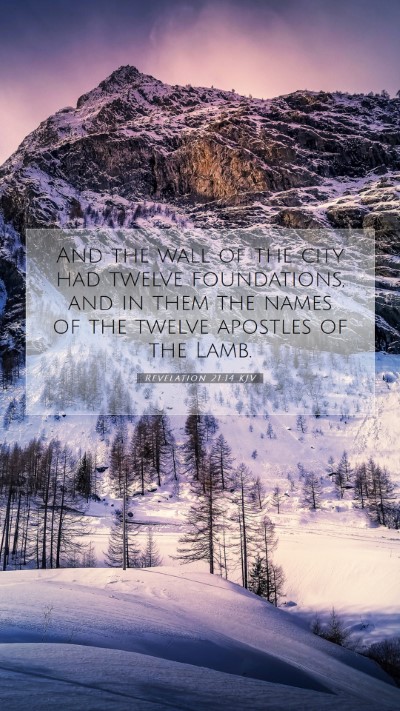Bible Verse Commentary: Revelation 21:14
Verse: Revelation 21:14 states, "And the wall of the city had twelve foundations, and in them the names of the twelve apostles of the Lamb."
Understanding the Context
The Book of Revelation, attributed to the Apostle John, presents a vivid portrayal of the end times, emphasizing themes of judgment, hope, and the ultimate victory of God. In Revelation 21, John describes the New Jerusalem—a divine city filled with the presence of God and a symbol of eternal life. This particular verse highlights the foundational elements of this heavenly city, specifically focusing on the twelve apostles as pivotal figures in the establishment of Christianity.
Bible Verse Meanings and Interpretations
12 Foundations: The number twelve often signifies completeness in the Bible. Here, the twelve foundations represent the full establishment of the Christian faith, built upon the teachings and apostles of Christ. Matthew Henry emphasizes that these foundations reflect the unity and diversity of the Church, constructed on the doctrines preached by the apostles.
Apostles of the Lamb: Referring to Jesus Christ as 'the Lamb' highlights His sacrificial role in redemption. Adam Clarke points out that naming the apostles on the foundations serves as a reminder of their crucial role as witnesses to Christ's ministry, death, and resurrection, establishing their authority in Christian doctrine.
Historical and Cultural Significance
This verse connects with the Jewish tradition where foundational stones represented stability and remembrance (as seen in the Temple). Albert Barnes notes that the names of the apostles serve as a testament to God’s faithfulness in establishing His covenant community through the early Church.
Applying the Verse to Daily Life
Reflection: For believers, the mention of the apostles’ names emphasizes the importance of apostolic teaching and the continuity of faith from the early Church to contemporary Christianity. It prompts a reflection on the roots of faith and calls believers to consider their connection to the foundational truths established by the apostles.
Community and Unity: In a time when divisions can arise within the Church, this verse serves as a reminder of the unity in Christ that transcends all differences. It underlines the importance of adhering to the teachings of Scripture and maintaining the collective witness of the Church.
Key Insights from Public Domain Commentaries
- Matthew Henry: Observes the significance of the apostles in the foundation of the Church, commenting on their role as foundational stones of faith.
- Albert Barnes: Highlights that the apostles' names represent the true discipleship and the establishment of God's kingdom on Earth.
- Adam Clarke: Discusses the connection of the twelve apostles to the old covenant and their implication in the new covenant established through Christ.
Related Bible Cross References
- Matthew 16:18 - "And I tell you that you are Peter, and on this rock I will build my church..."
- Ephesians 2:20 - "Built on the foundation of the apostles and prophets, Christ Jesus himself being the cornerstone..."
- Revelation 21:12 - "It had a great, high wall with twelve gates, and with twelve angels at the gates..."
Conclusion
Revelation 21:14 serves as an important reminder of the essential roles played by the apostles in the foundation of the faith. Through biblical exegesis, we understand that their teachings remain foundational for Christian doctrine and practice today. This verse invites believers to reflect on their roots in the faith and the significance of the teachings passed down through generations.


